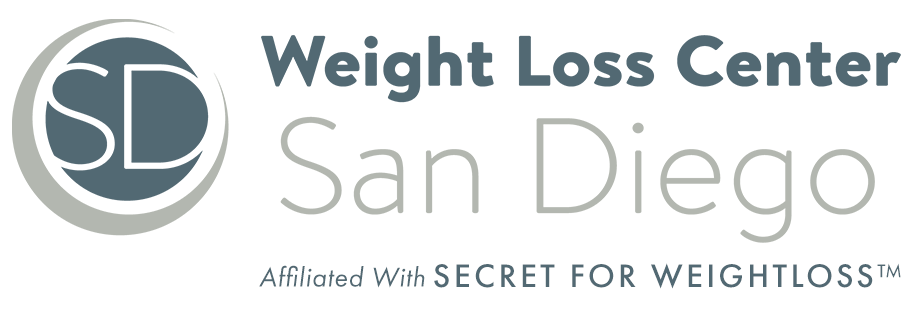What’s the Difference Between Weight loss and Fat Loss

What’s the Difference Between Weight loss and Fat Loss
For many people, weight loss is a common goal that’s often associated with improved health and appearance. However, the terms “weight loss” and “fat loss” are often used interchangeably, despite referring to different changes in the body. Understanding the differences between weight loss and fat loss is crucial for achieving your desired body composition and maintaining a healthy weight over the long term.
Differences Between Weight Loss and Fat Loss
The human body weight comprises 4 major components:
- Skeletal muscle weight or lean body – weight of the major organs, skeletal muscle, and other fat-free molecules in the body.
- Fat mass constitutes visceral fat, subcutaneous fat, and other fat molecules in the body.
- Water weight – essentially the water composition in the body and accounts for the major part of your total weight.
- Glycogen stores.
Weight loss is an overall reduction in the total weight of the body, which involves a reduction of water weight, fat mass, skeletal muscle weight, and glycogen stores. This form of weight reduction affects all the various weight categories in the body, leading to an overall reduction in kilo or pound weight.
Fat loss, on the other hand, is a weight reduction approach that leads to a reduction in fat mass while maintaining or increasing as much muscle mass as possible. This form of weight reduction allows you to achieve a fit, toned look by shredding out layers of unnecessary fat.
Which approach is better?
While losing weight can help you go down a kilo or two on the scale, it also causes you to lose water and skeletal muscle, which can be bad for your general health. This is because lean muscle mass is necessary for physical performance, daily activities, and mobility; otherwise, frailty may develop.
Fat loss, in contrast, only affects the body’s non-essential fat stores, allowing you to lose weight without compromising your ability to perform daily tasks and functions normally. It also preserves your muscle mass, which is essential for proper metabolism and is key in preventing you from regaining the fat you lost.
That said, the best course of approach would depend on your weight reduction goals and your individual preferences for your body. Regardless, weight loss specialists advise fat loss over weight loss.
How to lose fat and maintain muscle during weight reduction
Losing weight can help you stay fit and avoid diseases associated with obesity. However, it’s important to maintain skeletal muscle mass during the weight reduction period to avoid upsetting your body’s metabolism and its ability to function properly. This means using weight reduction strategies that focus majorly on fat loss. Some of these strategies include:
Eat enough protein: Protein is essential for building and maintaining muscle mass. Aim for around 1 gram of protein per pound of body weight per day, and make sure to spread your protein intake evenly throughout the day. Good sources of protein include lean meats, poultry, fish, eggs, dairy products, and plant-based protein sources such as legumes and tofu.
Don’t cut calories too drastically: If you reduce your calorie intake too much, your body may start to break down muscle tissue for energy, which can lead to muscle loss. Aim for a moderate calorie reduction of around 500-750 calories per day, which should result in a weekly weight loss of around 1-2 pounds approximately.
Eat a balanced diet: It’s important to eat a balanced diet that includes plenty of fruits, vegetables, whole grains, and healthy fats. These nutrient-dense foods provide essential vitamins and minerals that can support muscle growth and maintenance. Limit your intake of processed foods, sugary drinks, and unhealthy fats, which can contribute to weight gain and may lead to inflammation.
Get enough rest and recovery: Rest and recovery are essential for muscle growth and maintenance. Make sure you get enough sleep as needed in order to give your muscles time to recover. You should also incorporate relaxation techniques such as meditation or deep breathing to help reduce stress and support overall health.
Consider supplements: While supplements are not a replacement for a healthy diet and lifestyle, some supplements can help support muscle growth and recovery, such as whey protein, creatine, and beta-alanine. Consult with your healthcare provider before taking any supplements, especially if you have a medical condition or take medications.
Monitor your progress: Keep track of your weight, body fat percentage, and muscle mass using a scale or body composition analyzer, and adjust your diet as needed. Be patient and consistent, and remember that sustainable fat loss takes time and effort.
How to lose fat safely and healthily during your weight loss journey
Many people find losing weight to be a difficult journey, but when done properly, the results are astounding and rewarding. The important thing to remember is that losing weight is a marathon, not a sprint.
This includes avoiding crash diets that promise rapid weight loss in two weeks, only to have you regain the lost weight plus a little more. Instead, you should concentrate on long-term diets that will not cause nutrient deficiency or other health problems in your body.
If this seems too difficult for you, or if you’ve tried it before without success, seek professional assistance from the Weight Loss Center of San Diego.
We understand that sustainable weight loss isn’t just about shedding pounds quickly. That’s why we offer a comprehensive program that focuses on healthy and sustainable fat loss through personalized meal planning, nutrition education, coaching, and support. Our weight loss specialists will work with you to create a program that is tailored to your specific weight loss goals and needs.
Our program works to reset your metabolism through healthy, long-term diets that help you burn fat while maintaining muscle mass. With a dedicated coach to review your progress, provide education, and offer support, you can rest assured that you will have the necessary tools needed to achieve your goals.
But hey, don’t take our word for it! Book a free consultation with us and see the results for yourself.
Schedule a Free Consultation
Contact us today to schedule a free consultation with a weight loss expert!
1
Schedule a Free phone Consultation
2
Talk to one of our weight loss experts
3

